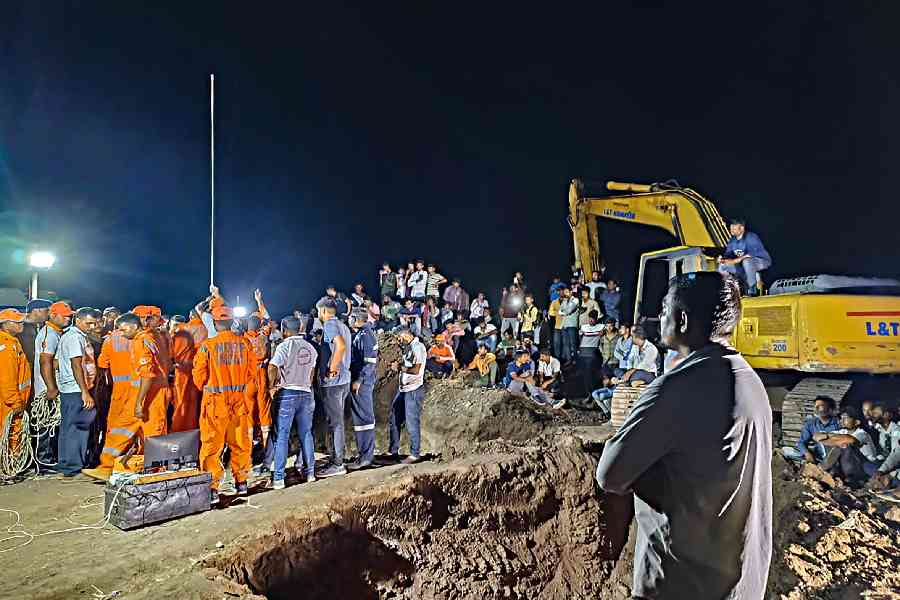A two-year-old girl, who slipped into a narrow borewell in Gujarat's Jamnagar district and got stuck at a depth of 20-feet, has died despite hectic rescue efforts by multiple agencies for 19 hours, an official said on Sunday.
The toddler, belonging to a tribal family working as labourers on a farm at Tamachan village, some 40 km from Jamnagar city, fell into the nearly 200-feet-deep borewell in an agricultural field while playing at around 9.30 am on Saturday.
A massive operation involving the Army, National Disaster Response Force (NDRF) and local fire personnel was launched to rescue the girl.
She was brought out at around 5.45 am on Sunday and declared dead, Jamnagar taluka development officer N A Sarvaiya said.
Earlier, as soon as the local administration got information about the incident, it launched a rescue operation involving fire department personnel at around 11 am on Saturday, Sarvaiya said.
Later, a team of Army personnel from Jamnagar and a NDRF team from Vadodara also joined the operation, he said.
"The rescue operation involving the Army and NDRF personnel went on for the entire night. The borewell was filled with water, and a private borewell robot was also used in the rescue operation," the official said.
"Water was drained and a parallel hole was dug as part of the rescue effort. Finally, the girl was brought out at around 5.45 am on Sunday and was declared dead," he said.
With the latest incident, the dangers posed by open and abandoned borewells have come to the fore again.
In July 2022, a 12-year-old girl fell into a borewell at a village in Gujarat’s Surendranagar district and got stuck at a depth of 60 feet, but was rescued nearly five hours later.
On June 9 last year, a two-year-old boy fell into a borewell at a farm in Surendranagar, following which a team of the Army, fire brigade, police and health officials rushed to the spot and rescued him.
In 2009, the Supreme Court issued guidelines for preventing fatal accidents of children falling into abandoned borewells.
The revised guidelines issued by the court in 2010 included setting up barbed wire fencing around the well during construction, using steel plate covers fixed with bolts over the well assembly and filling up of borewells from the bottom to the ground level.
Except for the headline, this story has not been edited by The Telegraph Online staff and has been published from a syndicated feed.











